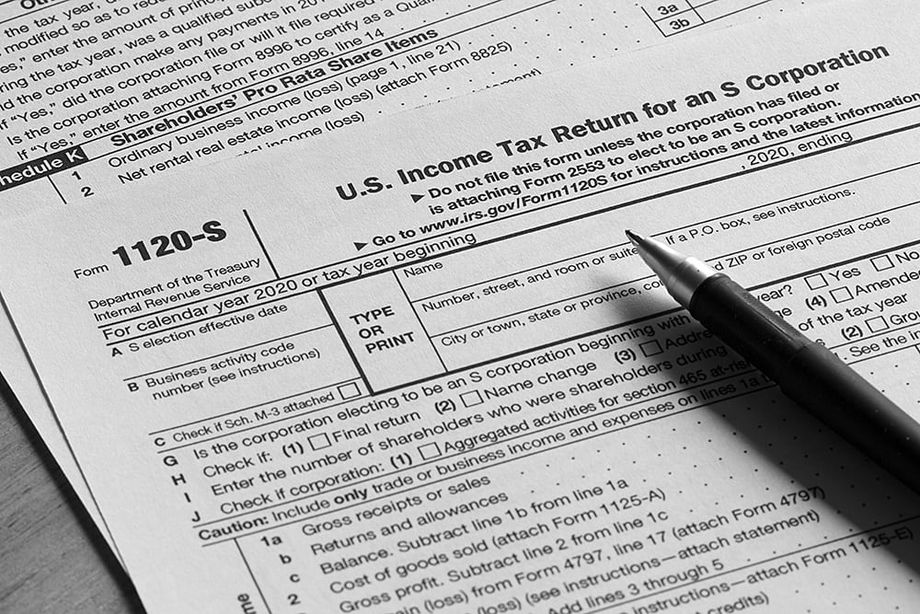If your business incorporated as an S Corporation, you are probably familiar with the S Corp tax deadline March 15. This is the tax deadline for S Corporations to file their annual tax return. The March 15 deadline will be the same tax filing deadline for S Corps in 2022. (This tax filing deadline is only subject to change if March 15 falls on a weekend or a holiday.)
What is an S Corporation? What does it mean to elect S Corp status? Do you know which documents this entity needs to file its tax return? Let’s take a look at how to prepare for the S Corp tax return deadline.
What is an S Corporation?
S Corporations are corporations with a “pass-through” entity.
Corporate income, losses, deductions, and credits may pass through to shareholders. These shareholders report taxable activity of the company on their personal income tax returns. In return, the corporation does not pay federal and state income tax. An S Corp is legally able to avoid what is known as double taxation.
S Corporation benefits
Electing S Corp status is often a popular choice when filing taxes with entity formations like limited liability companies (LLCs) and corporations. In addition to pass-through taxes, forming an S Corp provides entrepreneurs with limited liability protection and separating personal and professional assets.
An S Corp election also reduces self-employment tax liabilities. For instance, the S Corp’s shareholders may act as employees. The shareholders, now employees, receive a salary and dividends, helping to reduce self-employment tax liabilities.
S Corp eligibility
Think your corporation has what it takes to elect S Corp status? According to the IRS, you’ll need to fulfill S Corp eligibility requirements. This covers ownership criteria as well as stock criteria to qualify as an S Corporation.
- The business must be incorporated as a domestic corporation.
- A registered agent service must be designated to the business.
- The business may not have more than 100 shareholders.
- Shareholders of the business must be individual persons. Nonresident aliens may not be shareholders.
- The business must have a single class of stock.
- Finally, the business may not be an ineligible corporation. As stated by the IRS, this includes certain financial institutions, insurance companies, and domestic international sales corporations.
Is your corporation eligible for S Corp status? Great news! The corporation must file Form 2553 Election by a Small Business Corporation. Each shareholder of the S Corp needs to sign this form before it is submitted to the appropriate address or faxed to the specific fax number. (All information is outlined on the first page of Form 2553.)
Filing S Corp annual tax returns
As an S Corporation, it is your responsibility to file annual tax returns. What kinds of paperwork does that require? Let’s take a look at the two documents your S Corp requires.
Form 1120S
Form 1120S is the U.S. Income Tax Return for an S Corporation. This form contains fairly basic information about the S Corp. Filing Form 1120S allows the S Corp to share with the IRS their financial activity throughout the last calendar year.
What if Form 1120S is filed after March 15 or its tax extension deadline? (More about that IRS extension option in a moment!) The S Corp will be penalized by the IRS for its failure to file on time. A penalty fee must be paid. The minimum penalty for returns due after 2019 that are over 60 days late, according to the IRS, has increased to the smaller of the tax due or $435.
Schedule K-1 (Form 1065)
Schedule K-1 outlines the partner’s share of income, deductions, and credits in the S Corporation. Each partner, or shareholder, in the S Corporation must complete this form and include it with Form 1120S.
Can I get a filing extension?
A tax extension may be necessary for S Corporations, depending on their unique business needs. If you know your S Corp will need an extension for filing its annual tax returns, complete and file Form 7004. This is the Application for Automatic Extension of Time To File Certain Business Income Tax, Information, and Other Returns. Once your S Corp is approved for an IRS extension, be mindful of its filing due date and file by the deadline.
Do you still have more questions about filing S Corporation taxes? While the tips I provided above can help S Corps prepare for tax filing deadlines, I am not personally able to provide legal or financial advice. If you have additional questions about the tax or filing process, it’s a good idea to meet with a tax professional. Talk to an account or CPA for extra guidance. As a final pro tip, book the appointment as soon as possible so your S Corp may meet the March 15 deadline.





